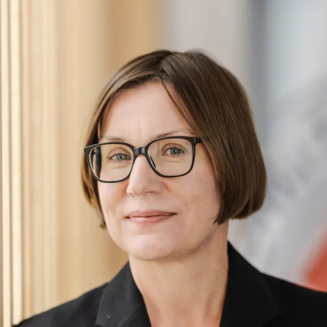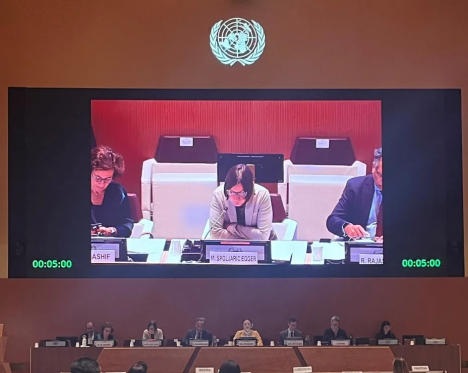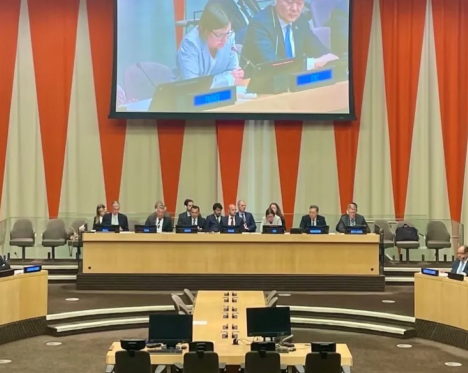Humanity in war:
A global initiative for humanitarian law
Humanity in war:
A global initiative for humanitarian law
Born from the ashes of World War II, the Geneva Conventions are a powerful promise that even in war, humanity must prevail. Created to put limits on the way wars are conducted and to protect those not taking part in the fighting – like civilians, prisoners and wounded soldiers – they have since been complemented with a series of treaties and customary law. This legal framework, known as international humanitarian law - or the laws of war - sets clear rules to follow amid the chaos of conflict.
There are now around 130 active armed conflicts worldwide.
They are not abstract legal concepts. They are the line between life and death, between dignity and despair, for millions caught in the crossfire. Yet despite a global consensus supporting the Geneva Conventions, adherence to even the most basic humanitarian norms remains shockingly insufficient in today’s war zones. Current conflicts reveal, in appalling and devastating ways, the immense challenges facing international humanitarian law in providing real and effective protection.
The suffering witnessed in war zones across the world is not inevitable. With strong political will, we can close the gap between the law and the reality on the ground.
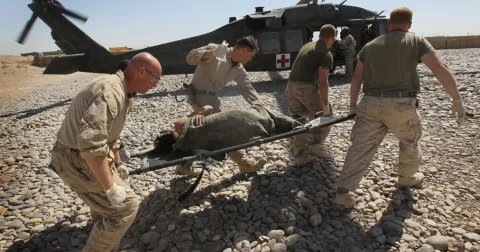
-
Civilians must be protected.
It is illegal to target civilians and civilian objects, such as homes, schools and hospitals. Civilians must also be protected against the effects of military operations.
-
The sick and wounded must be cared for regardless of whose side they're on.
Wounded, sick and shipwrecked civilians, soldiers and fighters, as well as medical staff, are all protected under IHL.
-
Detainees must be treated humanely and with dignity.
IHL protects those deprived of their liberty from ill treatment, acts of violence and intimidation.
-
The dead must be treated with dignity.
Warrying parties must take all possible measures to search for, collect and evacuate the dead.
-
Parties to a conflict must facilitate humanitarian access.
People must be able to receive humanitarian aid, like food, water and medicine.
-
IHL places limits on the fighting
IHL treaties and customary law regulate weapon use and ban some, such as biological and chemical weapons, landmines, and cluster munitions.
-
War crimes must be punished.
States have the responsibility to investigate, prosecute and punish serious violations of IHL.
Why this matters
To uphold and reaffirm the promise that, even in war, humanity must prevail.
The Global IHL Initiative exists to restore respect for the rules of war and ensure that the Geneva Conventions remain a living lifeline for the vulnerable. In an age of rising conflict and fading restraint, we stand for the sanctity of life, for accountability and for a future where the laws of war are not forgotten relics but the foundation of our shared humanity.
Despite the universal ratification of the Geneva Conventions, violations of fundamental humanitarian norms are widespread. Ongoing conflicts around the globe, whether in urban centres, rural villages or at sea, are causing devastating human suffering, destruction and displacement. Attacks on civilian infrastructure, hospitals and humanitarian workers are all too frequent. The human, social, economic and environmental costs of these violations are unsustainable.
The rules remain, but the commitment to uphold them is weakening, with catastrophic consequences for people trapped in conflict. These rules were not created to serve the powerful. They exist to protect the powerless: the civilian caught in the crossfire, the wounded on the battlefield, the prisoner behind bars.
What we're doing
This exceptional effort is a response to the urgent need for action, with the aim of addressing today's crises and securing a future where the fundamental rules of war are respected and upheld.
Over the coming year, we will address the most urgent challenges confronting international humanitarian law.
We have selected topics that call for collaborative reflection and action. Our workstreams are organized around the following key areas.
We know that it is possible to wage war while sticking to the rules of war – let's build on good practices, learn from one another and strengthen our collective commitment to prevent systematic violations of IHL.
Hospitals, homes, schools and essential services are protected under IHL. Despite this, violations occur all too often and show an alarming disregard for the rules.
We need to think about how the rules of war apply to new technologies, including information and communication technologies, and consider the challenges that large-scale conflicts might bring, including during military operations at sea.
Any armed conflict must be fought with a plan for an eventual peace. That is why it is essential to look at how compliance with IHL can contribute to mediation efforts.
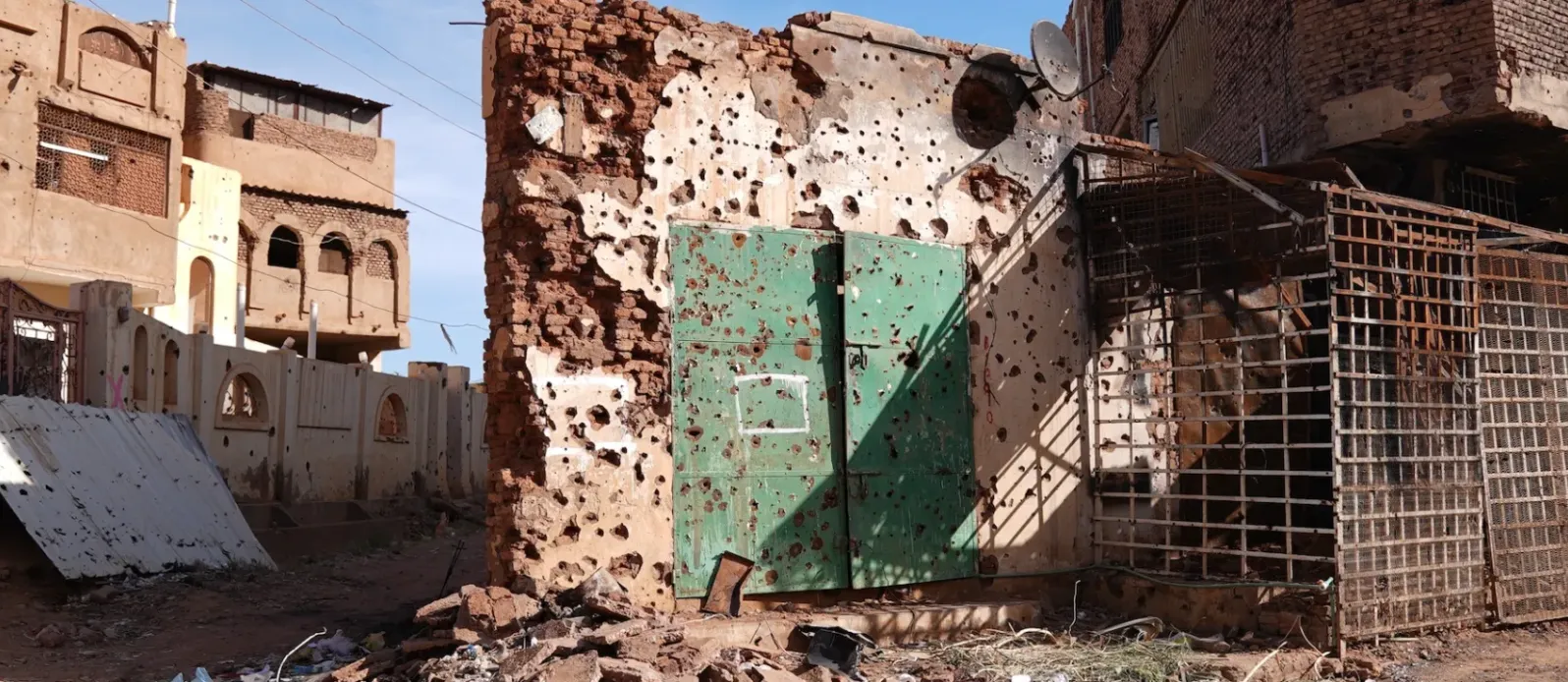
One initiative to uphold humanity in war.
For those who cannot fend for themselves in times of war – the civilians caught in the crossfire, the wounded on the battlefield, the prisoners behind bars – we reject a world where victory at any cost is acceptable, reassert our leadership in protecting humanity and are uniting leaders who demand a future where the rules of war are a political priority.
at the global, regional and national levels.
to ensure IHL is part of every discussion on armed conflict and security.
to address the most pressing humanitarian challenges in contemporary warfare and turn political commitment into concrete change on the ground.
Who's involved
As of mid-September 2025, 90 states have officially joined the Global IHL Initiative, launched by Brazil, China, France, Jordan, Kazakhstan and South Africa, together with the ICRC.
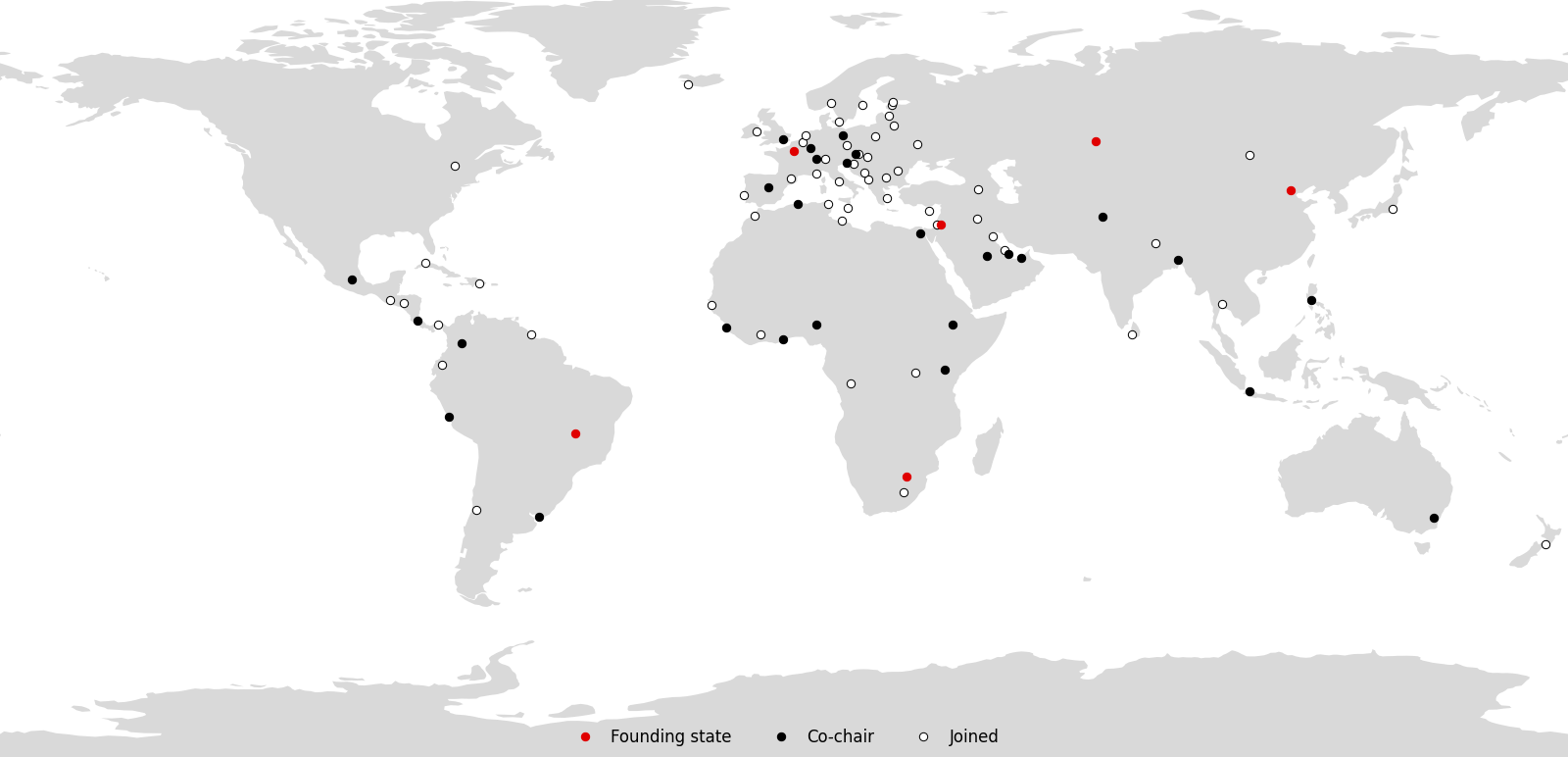
Alarmed by widespread violations of international humanitarian law (IHL) in conflicts around the world and the resulting unconscionable human suffering, we, the leaders of Brazil, China, France, Jordan, Kazakhstan and South Africa, together with the International Committee of the Red Cross (ICRC), urge States and the international community to act.
Co-chairs play a vital leadership role by encouraging broad participation, fostering constructive dialogue and shaping meaningful outcomes within each workstream. Their dedication ensures discussions remain inclusive, practical, non-politicized and focused on strengthening respect for international humanitarian law worldwide.
They create a space where states can share experiences, best practices and innovative solutions. Through leading consultations and supporting the ICRC, co-chairs drive progress toward actionable recommendations that enhance civilian protection and uphold the relevance of IHL in today’s conflicts.
Seven thematic workstreams address urgent and complex challenges of contemporary warfare today.
Sharing effective measures such as training to prevent IHL violations before they occur. The workstream focuses on incorporating IHL values into military, government and public education and reinforcing practices that have proven impactful to change behaviours in war to ensure better respect for IHL.
Exploring how these important domestic bodies can be bolstered to further support their governments to fulfil their IHL obligations.
Exploring how respect for IHL can reduce harm, build trust, facilitate dialogue and support sustainable peace and reconciliation.
Addressing how the rules of war apply to the protection of critical infrastructure, including by clarifying the definition of military objectives and preventing attacks on civilian objects.
Strengthening the specific protection of medical facilities and personnel, preventing misuse of hospitals and hence attacks against them, and ensuring life-saving care is never interrupted.
In light of the human costs of the use of ICTs during armed conflict, building a shared understanding of how IHL limits such activities in order to safeguard civilians from harm.
Addressing the changing nature of naval warfare and the increased presence of civilians at sea, by better understanding the humanitarian impact of maritime conflict on people and infrastructure, both at sea and on land.
An advisory board has been established to steer the work of the Global IHL Initiative towards its objectives.












Where we are
It is imperative for the international community to reiterate its political commitment and support to uphold IHL, both in letter and in spirit, leading to an alleviation of the impact of conflicts, including on civilians and civilian objects. Otherwise, the world risks witnessing spiraling conflicts leading to unprecedented human, political, social, and economic costs.
What comes next
Latest news
2026 High-level meeting to uphold humanity in war
The Global IHL Initiative speaks to all conflicts around the world, addresses all relevant stakeholders, and seeks to ensure an even and universal application of IHL. It also recognizes that the primary responsibility to uphold, implement, and apply the Geneva Conventions in practice lies with States. In that spirit, Brazil, China, France, Jordan, Kazakhstan, South Africa announced a global high-level meeting to uphold humanity in war in 2026.
Start with IHL at home, by officially allocating adequate resources to invest in and ensure compliance with IHL, including in ongoing conflicts.
Advancing the integration of IHL into national legislation and conflict preparedness, by means such as adequate training of military and security forces, and through empowering national IHL committees.
Formally join the Global IHL Initiative, engaging actively in the consultations and encouraging others to do the same.
The overall goal of the initiative is first to make IHL a political priority, at the global, regional and domestic level. Second, it is to re-centre the debate on the urgent need for the international community to set higher expectations for parties to conflict to carry out the universal, systematic and faithful application of IHL. Third, it is to create a process to discuss challenges on specific IHL topics, such as preventing IHL violations or the rules governing the conduct of hostilities, and make clear recommendations. The initiative will produce concrete and practical recommendations to meet these challenges. By the end of 2026, the work will culminate in a landmark meeting to uphold humanity in war.
This year marks the 76th anniversary of the adoption of the Geneva Conventions. The conventions have been universally ratified and, together with IHL more generally, have proven over the decades that, when respected, they can save millions of lives. Nevertheless, ongoing armed conflicts are causing devastating human suffering and displacement. Violations of fundamental rules of IHL remain a serious concern.
Today, many feel that IHL is at a crossroads: as these challenges grow, the world must decide whether to reassert a strong and effective commitment to uphold IHL. This initiative, launched by six states from around the world and inviting all states to join, seeks to give a strong impulse to boost hope and fight lethargy, because a disregard for the rules of IHL is not inevitable. It can – and must – be overcome.
The initiative is composed of several workstreams, running in parallel. These workstreams look at specific areas of IHL that are in need of deeper reflection and urgent action. They involve consultations with states and experts.
The initiative will produce concrete and practical recommendations to meet the challenges facing IHL.
All states are encouraged to join the initiative. This is about the universality of IHL, and it is hoped that the entire international community will come together to reassert their commitment to upholding the rules and principles of IHL. The states that launched the initiative, and the co-chairs of the seven workstreams, have the primary role in convening other interested states and in generating interest and active participation for the initiative.
Interested states can express their willingness to support and join the initiative by contacting the ICRC directly. Each interested state will be able to participate in the consultations and be active in different workstreams. There is no financial contribution required to join the initiative.
You can also send an email to IHLinitiative@icrc.org.
The ICRC has a mandate to work for the faithful application of IHL, to raise awareness and understanding of IHL and to help develop IHL. Throughout its history, the ICRC has launched various initiatives to strengthen IHL. This latest initiative was launched by six states and the ICRC, triggered by the stark observation that more needs to be done to increase respect for IHL and prevent violations.
The ICRC organizes the consultations, with the support of the co-chairs of the seven workstreams. The ICRC provides legal and technical expertise.
The initiative recognizes that stronger respect for IHL requires firm political will. Led by the president of the ICRC, the organization engages with all states to build support for the better implementation of and adherence to IHL.
This global effort seeks to generate political momentum across all regions, leading to a successful high-level meeting in 2026 aimed at upholding humanity in times of war. Along the way, regular moments of engagement will help states and other stakeholders reaffirm their commitment and plan the meeting. An advisory board provides strategic guidance and ensure the initiative remains inclusive, forward-looking and grounded in humanitarian principles. Through this combined approach, the ICRC seeks to strengthen international commitment to IHL, reinforcing respect for the law and the protection of human dignity during armed conflict.
